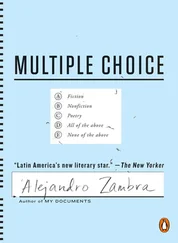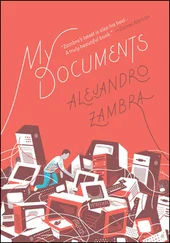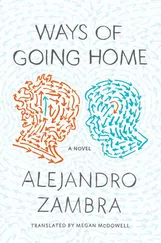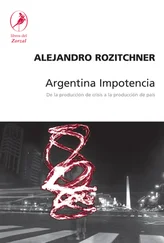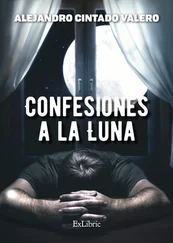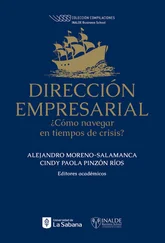Gazmuri doesn’t matter, the one who matters is Julio. Gazmuri has published six or seven novels that, together, form a series on the recent history of Chile. Almost nobody has really understood them, except maybe Julio, who has read and reread them several times.
How is it that Gazmuri and Julio come together?
It would be excessive to say they come together.
But yes: one Saturday in January Gazmuri waits for Julio in a café in Providencia. He has just placed the final period at the end of a new novel: five Colón notebooks, completely handwritten. Traditionally, his wife is charged with transcribing his notebooks, but this time she doesn’t want to, she’s tired. She’s tired of Gazmuri, she hasn’t spoken to him for weeks, that’s why Gazmuri looks worn out and disheveled. But Gazmuri’s wife doesn’t matter, Gazmuri himself matters very little. So the old man calls his friend Natalia and his friend Natalia says that she’s too busy to transcribe the novel, but she recommends Julio.
Do you write by hand? Nobody writes by hand these days, observes Gazmuri, who does not wait for Julio’s response. But Julio responds, he says no, that he almost always uses a computer.
Gazmuri: Then you don’t know what I’m talking about, you don’t know the drive. There’s a drive when you write on paper, a sound to the pencil. A strange equilibrium between elbow, hand, and pencil.
Julio talks, but what he says is not heard. Someone should turn up his volume. Gazmuri’s throaty and intense voice, on the other hand, booms, works perfectly well:
Do you write novels, those novels with short chapters, forty pages long, that are in fashion?
Julio: No. And he adds, to have something to say: Would you recommend that I write novels?
What kind of question is that? I’m not recommending anything to you, I don’t recommend anything to anyone. Do you think I met with you in this café to give you advice?
It’s difficult to talk to Gazmuri, Julio thinks. Difficult yet pleasant. Immediately Gazmuri begins to talk entirely by himself. He talks about diverse political and literary conspiracies, and emphasizes, in particular, one idea: one must protect oneself from the cosmetologists of death. I am sure that you would like to put makeup on me. Young people like you approach old people because they like that we are old. Being young is a disadvantage, not a virtue. You should know that. When I was young I felt at a disadvantage, and now as well. Being old is also a disadvantage. Because the old are weak and we not only need the flattery of the young, we need, deep down, their blood. An old man needs a lot of blood, whether he writes novels or not. And you have a lot of blood. Perhaps the only thing you’ve got to spare, now that I’m getting a good look at you, is blood.
Julio doesn’t know what to say. Gazmuri’s strong laugh saves him, a laugh that suggests that at least part of what he just said was in jest. And Julio laughs with him; it amuses him to be here, working as a secondary character. He wants, as much as possible, to stay in that role, but to stay in that role with security he should say something, something that will earn him relevance. A joke, for example. But the joke doesn’t come out. He says nothing. It’s Gazmuri who says:
At this corner something very important happens in the novel that you’re going to transcribe. That’s why I had you meet me here. Toward the end of the novel, right on this corner, something important happens, this is an important corner. For all of this, how much are you thinking of charging me?
Julio: A hundred thousand pesos?
Julio is actually willing to work for free, even though, certainly, he has no money to spare. It seems a privilege to him to drink coffee and smoke dark cigarettes with Gazmuri. He said a hundred thousand the way he said good morning before, mechanically. And he keeps listening, he lags a little behind Gazmuri, he smiles and nods, although he would rather listen to all of it, absorb information, remain, now, full of information:
Let’s say that this will be my most personal novel. It’s quite different from the prior ones. I’ll summarize it a little for you: he finds out that a girlfriend from his youth has died. He turns on the radio, like every morning, and hears the woman’s name in the obituaries. Two first names and two last names. That’s how it all begins.
All of what?
Everything, absolutely everything. I’ll call you, then, as soon as I make my decision.
And what else happens?
Nothing, the same as always. Everything goes to hell. I’ll call you, then, once I make my decision.
Julio walks toward his apartment, visibly confused. Perhaps it was a mistake to ask for a hundred thousand pesos, though he also isn’t sure that sum would be a significant amount for a person like Gazmuri. He needs the money, of course. Twice a week he teaches Latin classes to the daughter of a right-wing intellectual. That and the remaining balance of a credit card his father gave him constitute his entire salary.
He lives on the subterranean floor of a building on the Plaza Italia. When the heat dazes him, he passes the time watching people’s shoes through the window. That afternoon, just before turning his key, he realizes that María, his lesbian neighbor, is arriving. He sees her shoes, her sandals. And he waits, he calculates the footsteps and her greeting of the doorman, until he feels her coming and then he concentrates on opening the door: he pretends to have put in the wrong key, though there are only two keys on the ring. It seems that none of them fits, he says in a very loud voice, while he looks at her from the corner of his eye, and manages to see a little. He sees her long white hair, which makes her face seem darker than it actually is. Once they had a conversation about Severo Sarduy. She is not much of a reader, but she knows the work of Severo Sarduy very well. She is forty or forty-five years old, she lives alone, she reads Severo Sarduy: because of that, because two plus two is four, Julio thinks María is a lesbian. Julio also likes Sarduy, especially his essays, thanks to which he always has conversation topics with gays and lesbians.
That afternoon María looks less restrained than usual, in a dress she rarely wears. Julio is about to mention it, but he restrains himself, thinking that perhaps she finds such comments disagreeable. To forget his interview with Gazmuri, he invites her over for coffee. They talk about Sarduy, about Cobra , about Cocuyo , about Big Bang , about Written on a Body . But also, and this is new, they talk about other neighbors, and about politics, strange salads, tooth whiteners, vitamin supplements, and a nut sauce she would like Julio to try one day. The moment arrives when they run out of topics and it seems inevitable that both of them return to their own activities. María is an English teacher, but she works at home translating manuals for software and sound systems. He tells her that he just got a good job, an interesting job, with Gazmuri, the novelist.
I’ve never read him, but they say he’s good. I have a brother in Barcelona who knows him. They were in exile together, I think.
And Julio: Tomorrow I’m starting to work with Gazmuri. He needs someone to transcribe his new novel, because he writes on paper, and he doesn’t like computers.
And what’s the novel called?
He wants us to talk about the title, to discuss it. A man learns from the radio that a love from his youth has died. That’s where it all begins, absolutely everything.
And what happens next?
He never forgot her, she was his great love. When they were young they took care of a little plant.
A little plant? A bonsai?
That’s it, a bonsai. They decided to buy a bonsai to symbolize the immense love that united them. After that everything goes to hell, but he never forgets her. He went on with his life, he had children, he got divorced, but he never forgot her. One day he finds out she has died. Then he decides to pay her homage. I still don’t know what that homage consists of.
Читать дальше

